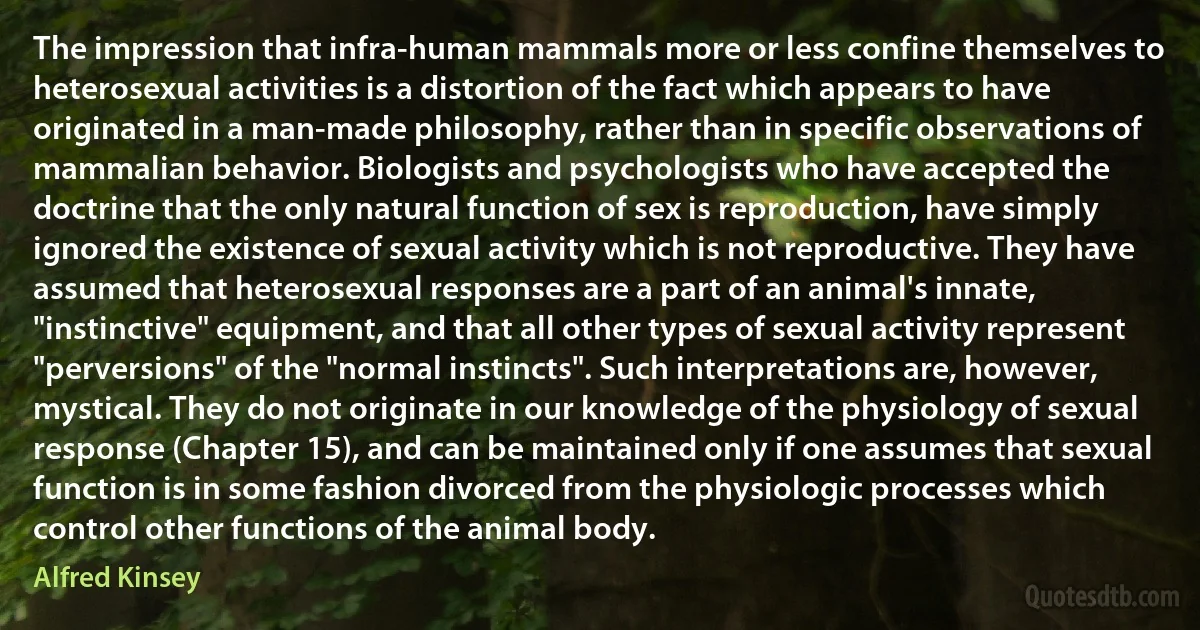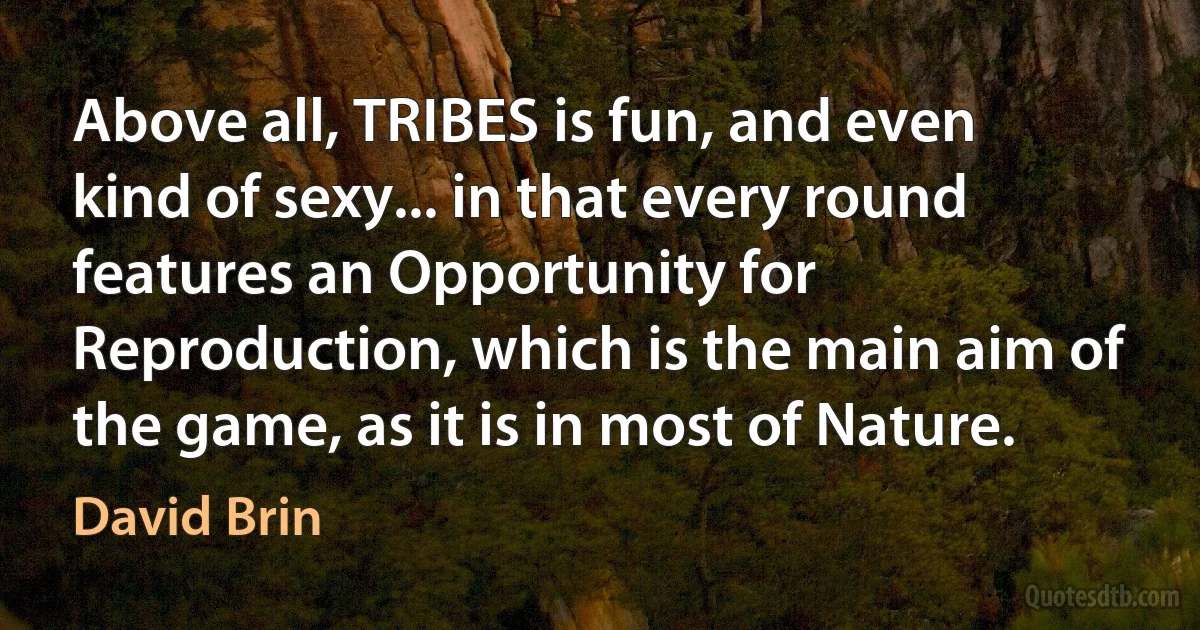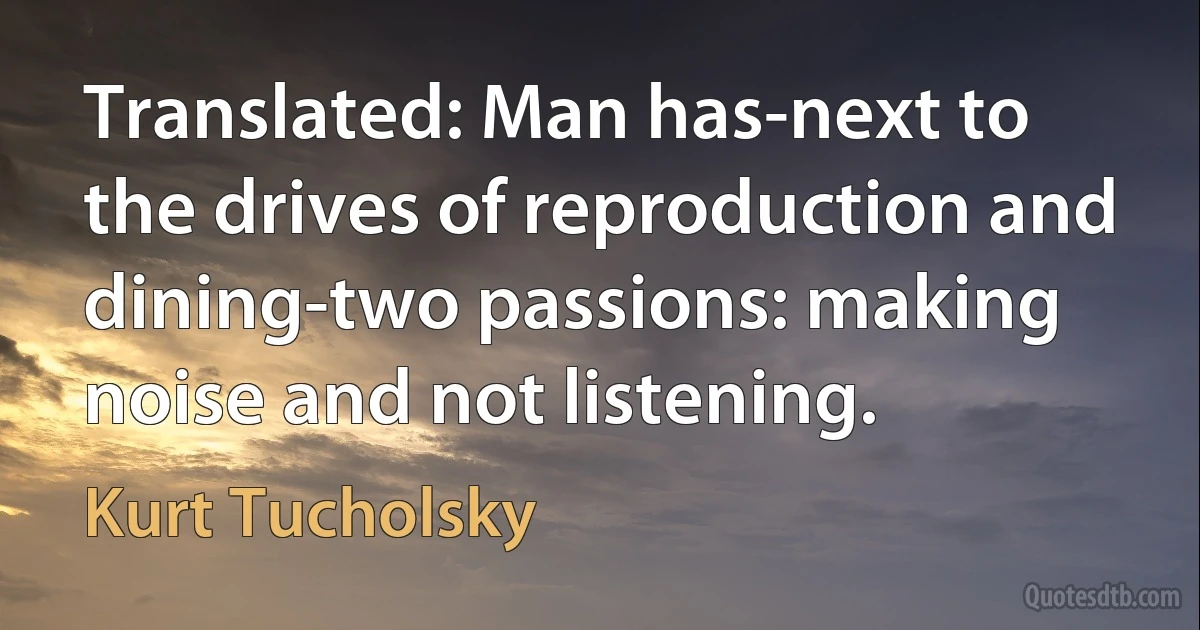Reproduction Quotes - page 3
Gertrude Stein, in her work, has always been possessed by the intellectual passion for exactitude in the description of the inner and outer reality. She has reproduced simplification by this concentration, and as a result the destruction of associational emotion in poetry and prose. She knows that beauty, music, decoration, the result of emotion should never be the cause, even events should never be the cause of emotion nor should they be the material of poetry or prose. Nor should emotion itself be the cause of poetry and prose. They should consist of an exact reproduction of either an outer or inner reality.

Gertrude Stein
If we ask how creatures [bees] that act so elaborately against their private advantage can have evolved, the answer lies in their mode of reproduction. Most workers are sterile. The unit of selection is normally the whole community. Its prosperity depends on the efficiency of the workers. An uncooperative strain would simply revert toward the solitary life these insects started from and in which many would still remain.. So it is natural to understand their evolution, as we would that of a plant, without reference to the plans or wishes of the individual bees.

Mary Midgley
We are programmed to find sex pleasurable for one simple reason-because animals who mate have offspring. Those who do not mate have none. Traits that result in successful reproduction get reinforced and passed on. Evolution is that simple.
It is therefore useless to bemoan as evil the fact that men tend toward aggression. Among our ancestors, aggression often helped males have more offspring than their competitors. "Good” and "evil” had little to do with it.
That is, until we reached consciousness, at which point, good and evil became pertinent indeed! Behaviors which might be excusable in dumb beasts can seem perverted, criminal, when performed by thinking beings. Just because a trait is "natural” does not oblige us to keep it.

David Brin
It is clearly absurd to say that if you go on adding atoms together until they have fused into a complex molecule, that molecule will become capable of self-reproduction. It is like saying that a skyscraper is more capable of reproduction than a bungalow. And suppose life did come into being through some accidental interaction of molecules, sun and cosmic rays; why should it not be content to rest passively? Why should it have been possessed of a desire to persist and evolve?

Colin Wilson
Hayek's theory of evolutionary rationality shows how traditions and customs (those surrounding sexual relations, for example) might be reasonable solutions to complex social problems, even when, and especially when, no clear rational grounds can be provided to the individual for obeying them. These customs have been selected by the ‘‘invisible hand'' of social reproduction, and societies that reject them will soon enter the condition of ‘‘maladaptation,'' which is the normal prelude to extinction.

Roger Scruton
As opposed to [megatechnics], an organic system directs itself to qualitative richness, amplitude, spaciousness, free from quantitative pressure and crowding, since self-regulation, self-correction, and self-propulsion are as much an integral property of organisms as nutrition, reproduction, growth, and repair. Balance, wholeness, completeness, continuous interplay between inner and outer, the subjective and the objective aspects of existence are identifying characteristics of the organic model; and the general name for an economy based on such a model is an economy of plenitude.

Lewis Mumford
If women take their bodies seriously-and ideally we should-then its full expression, in terms of pleasure, maternity, and physical strength, seems to fare better when women control the means of production and reproduction. From this point of view, it is simply not in women's interest to support patriarchy or even a fabled "equality" with men. That women do so is more a sign of powerlessness than of any biologically based "superior" wisdom.

Phyllis Chesler
In 1913 I had the happy idea to fasten a bicycle wheel to a kitchen stool and watch it turn. A few months later I bought a cheap reproduction of a winter evening landscape, which I called 'Pharmacy' after assign two small dots, one red and one yellow, in the horizon. In New York in 1915 I bought at a hardware store an snow shovel on which I wrote 'In advance of the broken arm'. It was around that time that the word 'Readymade' came to mind to designate this form of manifestation.

Marcel Duchamp
The immanent purpose is an intrinsic property of living beings, without it, they would not exist. Consider the autonomous function units and their components: organs, tissues, isolated cells, as well as other properties such as nutrition, body defense, growth, reproduction, to which they are subject at the end. When it comes to these properties, biologists do not argue; but if you pronounce the word purpose, there is a public outcry. Probably because they do not distinguish the purpose of fact or immanent, the trascendental purpose. Of the latter, the biologist has little or nothing to say; it is a matter of metaphysics.

Pierre-Paul Grassé
Can the human appropriation of nature ever achieve the elimination of violence, cruelty, and brutality in the daily sacrifice of animal life for the physical reproduction of the human race? To treat nature "for its own sake" sounds good, but it is certainly not for the sake of the animal to be eaten, nor probably for the sake of the plant. The end of this war, the perfect peace in the animal world - this idea belongs to the Orphic myth, not to any conceivable historical reality. In the face of the suffering inflicted by man on man, it seems terribly "premature" to campaign for universal vegetarianism or synthetic foodstuffs; as the world is, priority must be on human solidarity among human beings. And yet, no free society is imaginable which does not, under its "regulative idea of reason," make the concerted effort to reduce consistently the suffering which man imposes on the animal world.

Herbert Marcuse
Mechanical reproduction emancipates the work of art from its parasitical dependence on ritual. To an ever greater degree the work of art reproduced becomes the work of art designed for reproducibility. From a photographic negative, for example, one can make any number of prints; to ask for the "authentic” print makes no sense. But the instant the criterion of authenticity ceases to be applicable to artistic production, the total function of art is reversed. Instead of being based on ritual, it begins to be based on another practice – politics.

Walter Benjamin



